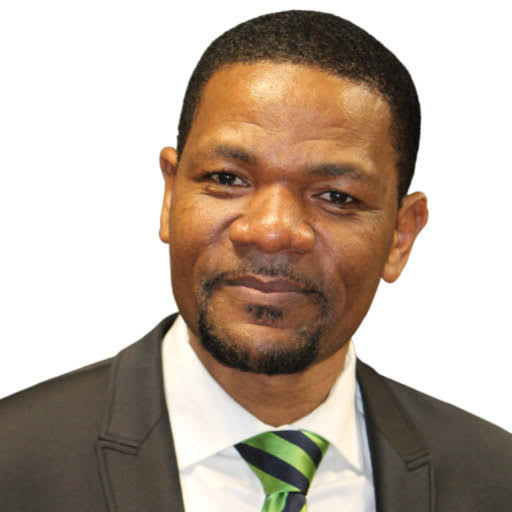Cameroonian-born Dr. Richard Munang, is the United Nations Environment Climate Change Coordinator for Africa. In this chat with Obioma C. Appolos, he vitally spoke about the issues of unemployment in Africa , and pungently point out the way forward for the black continent and her teeming youths.
Unemployment is a global phenomenon, I think. But compare to other continents, how would you rate the level of unemployment in Africa, and where do you think it has placed the continent on a global scale?
In this 2019, average global unemployment has been reported to have reached the lowest levels in a decade at 5%, and the number of people with jobs has increased in the world’s largest economies. However in Africa, the situation is not as rosy. Unemployment is projected to have risen to exceed 30% in 2019 and young people will continue to be 3.5 times more likely than adults to be unemployed.
While this scenario is not what any of us would like to prevail, we can take courage in the words of one African proverb which reminds us that “every door has its own key”. Africa’s unemployment has its own key – and that key lies in us. Let us therefore be encouraged that the chronic unemployment challenge while grave, has a solution that is within our reach.
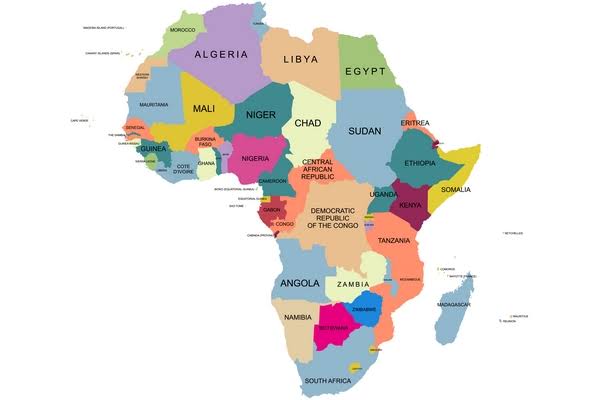
Everyone points to bad governance as the bane to living a relatively good life in Africa, in the context of the subject matter, what would you say are the drivers of the unemployment rate in the continent?
“Those who accomplish great things pay attention to little ones”, in the context of this question, whenever there is talk of governance in Africa, the responsibility is always deflected to government institutions, policy and laws. But the role of the individual citizens, and their omissions and commissions, is never brought to light and this is a seemingly small detail that is holding us back– personal responsibility failures.
A recent study found that far too many youthsare willing to engage in malpractice in order to be wealthy. 50% of youth surveyed in the representative study said it doesn’t matter how a person makes money, as long as they do not end up in jail – implying they would steal to get wealth if they were sure the law would not catch up with them.
35% said directly that they would easily take or give a bribe. Simply put, what we are calling Africa now and future, the youth, are willing to circumvent the law to achieve their selfish ends. This then is to say that regardless of the laws and institutions in place, the culture among people is to look for loopholes and exploit them just to get ahead.
This selfish mindset is the source of Africa’s governance flaws – not just institutions because even these institutions are run by people. So, Africa’s unemployment boils down to failures of the citizens to take responsibility in developing their country and continent – of putting selfish interests before the urgency to develop solutions to the continent’s challenges.

The ILO recently held a Global Youth Employment Forum in Abuja Nigeria, and it was said at the forum that the number youths unemployed in Africa is humongous. In the light of this, what are the gross effects of youth unemployment to the continent considering the high level of social vices and security challenges?
Social vices and insecurity are obvious consequences and they are before our eyes daily. But most important is solutions to the unemployment challenge. And for this, I think an African proverb puts this into perspective – that “one who causes others misfortune also teaches them wisdom”. Simply, this proverb reminds us that the challenges we face are disguised opportunities.
Among most notable challenges Africa faces that can be turned to become solutions to the very high unemployment is the high postharvest losses (PHLs) experienced in the continent. Africa loses food worth $48billion each year due to PHLs. To cover for these losses, food worth $35billion is imported. This implies $83billion can be recouped and turned to income opportunities along the entire value chain if the continent prioritises value addition to reverse these losses.
Second question is how we can add this value. For this, we must remember that “a man does not wander far from where his corn is roasting”. In context, this Africa proverb reminds us that the focus should be on leveraging on areas of our strength as a continent. Here, clean energy, especially solar comes to mind. Africa has the best solar resource in the entire planet.
Just 0.3% of the sun that shines the Sahara is equivalent to nearly all of Europe’s energy needs. Fabricating simple and accessible solutions like solar driers, to harness this energy and use it to power preservation and conversion of agro-produce into various products will be taking us multiple steps ahead in converting the PHLs into incomes and jobs.
Just as an example, in Cameroon, use of solar driers among cassava farmers – where cassava is converted into dried cassava chips that can be preserved for longer, sold to millers to be further processed into cassava flour or eaten as is / or fried into cassava chips, has seen incomes increase by 150% and loss reduce by 30%. In Kenya, use of solar driers to dry rice has proven to be 48times faster than traditional open sun drying and result in better quality, cleaner, more hygienic rice that fetches more in the market.
The result is losses are being converted into incomes and jobs for youth engaged in solar drier fabrication as well as those interested in agro-value addition. Cumulatively, agro-value addition is projected to create no less than 17million jobs across Africa and create a $1trillon economy by 2030. The solution – value addition – starting off with very accessible areas like fabricating solar driers and decentralising these to power various processes across different value chains.
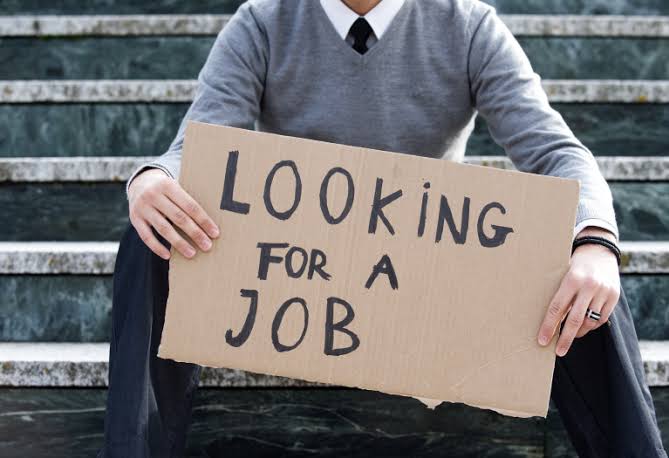
In terms of development, economic growth etc, what would you say are the direct implication of a massive unemployed youths to the continent?
Youth account for 60% of all Africa’s jobless. I think missed opportunities is the biggest implication for Africa we are talking of here. Everywhere in the globe, human capital: that is people and the skills, talents, energy, creativity they hold; is the most valuable capital for an economy.
A skilled personcapable of converting challenges into income and enterprise opportunities is 4 times the value of produced capital and 15 times the value of natural capital.
Africa’s failure to leverage on skills of its people as the most critical capital has been the major negative economic implication. The unemployed youth represent idle and wasted capital – especially considering that Africa’s population is majority youthful at 60% – which is 720million persons with a whole life ahead of them to turn Africa into a shining city on the hill.
Measuring policies and political will/result oriented action, how will you rate the performance of African governments towards solving the menace of unemployment?
Two key issues need to be appreciated. First, the era of expecting government to legislate, formulate policy from such legislation, implement policy, monitor implementation and report progress is long gone. Non-state actors responsible for operational level implementation must now step to the plate and leverage existing enabling policies and engage to meet government halfway in the fight against unemployment.
And when I say non-state actors, I mean you and 720million youth across Africa. Africa’s youth are the most significant non-state actor constituency by numbers and their contribution to the solutions process is paramount. So, my first point is this – with regards to unemployment, the youth and everyone else must ask themselves, what they are doing with what they currently have, to create opportunities for themselves and others.
We must be realistic, in this era of globalised competition, Africa is 20times less competitive than its competitors in the global arena. So how do we expect jobs to be realised from such below par economic performance – its not possible. And it’s not the job of government to create competitive products and services – rather it is up to citizens to use their skills, creativity and ingenuity to do so.
We must therefore each ask ourselves what we are doing in solving the problem. I will conclude this point with an example – nearly every country in Africa has very elaborate clean energy policies that have among benefits, zero-rating of taxation on clean energy systems and spares. For example, take solar – not only is the sun free, but thanks to favourable policies by government, the cost of solar in Africa has reduced by over 60%, and is the lowest in the globe.
Africa’s cost of solar is $1.30 per watt compared to the global average of $1.80 per watt. But how many non-state actors are leveraging on this? Just a simple solar drier applied in Cameroon as I earlier mentioned increased incomes by 150%. It was not government who did it, it was private citizens leveraging existing favourable solar policies and engaging their ingenuity to fabricate a drier and a group of women cassava farmers pooling their resources in a merry-go-round arrangement to pay for acquire the drier to reduce their losses and increase their incomes.
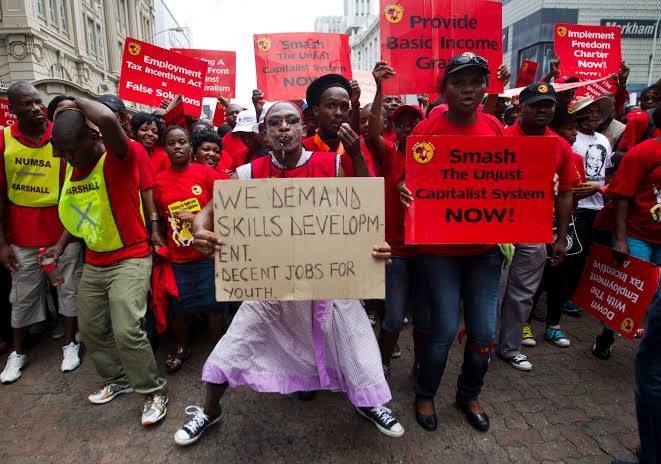
Second, one may ask; where do I start as an individual to create opportunities for myself and others? The answer is skills retooling. All of us, and especially our youth, regardless of disciplinary backgrounds, must continuously improve, refine towards perfection, & realign their skills and work in mutual collaborations to tap opportunities presented by Africa’s area of global comparative advantage; Africa’s areas of strength.
Focusing on areas of comparative advantage is the shortest route for the region to build global competitiveness and ensure the continents goods and services can compete favourable against global competition. Clean energy powered agro-value addition industry and enterprise stands out the biggest comparative advantage area for the continent.
Not only does Africa have the majority of the global arable land and among the best clean energy sources, with good policies in place, but also the local market is significant estimated at over $150billion per year. So regardless of what one studied, engaging their skills, talents, interest to develop competitive value addition solutions, and reverse the $48billion in annual PHLs and tap local markets is the best way to create jobs in Africa.
The UN Environment is through what we call Innovative Volunteerism, – which is structured guidance and inspiration to youth & the young at heart, to use their skills & ongoing work, collaborate with their peers and establish climate action enterprises, retooling youths’ skills. This by supporting them refine, improve and realign their skills to tap gaps along Africa’s agro-value chains and clean energy and turn these into enterprises.
As an example, in Nigeria, youth with diverse skills have been guided to leverage their skills and work collaboratively to tap opportunities in Nigeria tomato value chain. It is worth noting that Nigeria is Africa’s second largest tomato producer but upto $15billion worth of tomato is lost as tomato PHLs each year. The government put in place the tomato policy to minimise importation of tomato paste and incentivise local production of paste and this is what these youth are leveraging.
They are working with farmers, clustering them into groups, guiding them to pool their resources and supporting them to acquire solar cold storage and solar drier solutions to preserve their harvest and convert it into other edible solutions like traditional organic tomato paste. They are then supporting the farmers link to markets. Cumulatively, farmers recue their losses and improve revenues while the youth also earn by linking the tomato produce to markets. This is set to expand as the youth are now progressing to start fabricating the driers themselves as well as expanding the solution to other value chains – cassava, rice, onions.
In Uganda, youth have been guided to re-tool their skills in the fabrication of solar driers with enhanced drying efficiency. These driers are then linked to local cassava farmers to enable them dry their cassava, increase their shelf life and enable them scout for better markets and earn more without having to worry about spoilage which previously caused rushed selling and losses.
In Kenya, youth with skills in marketing, ICT and clean energy have been guided and are working collaboratively and have developed a solar drier that can dry rice 48times faster than local drying approaches while ensuring quality of the rice that millers are demanding. They have gone ahead to mobilise and cluster rice farmers to pool their resources and acquire these driers. They are also working to constantly improve the drier design to make it even more effective and affordable and capable of using local materials to fabricate.
All this is through structured guidance on innovative volunteerism. I encourage all to sign-up at www.innovativevolunteerism.ebafosa.org and be likewise guided. In addition, in this era of internet connectivity, youth should spend less time on Instagram and Facebook and instead do more research on google on how to improve their skills and develop some of these solutions. You will be amazed at the wealth of knowledge on the internet – but only if you invest your time and energy to train yourself and improve your skills to make competitive offerings.
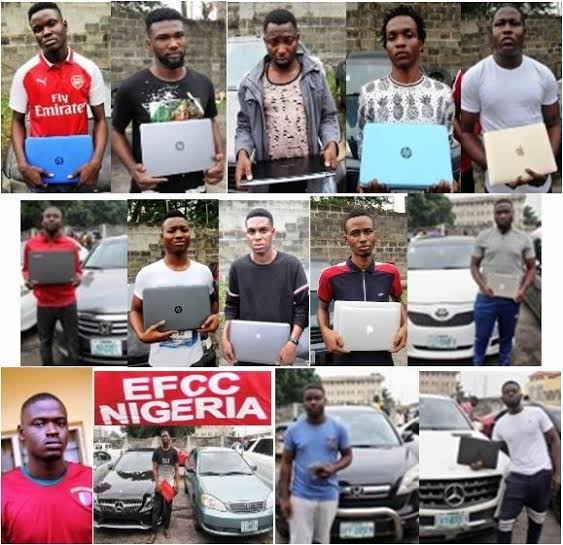
Having visited many countries in Africa in the course of your job, would you say that some countries in the continent are doing better than others, and what do you think they are doing differently?
I think we all need to learn two lessons; first is producing competitively in areas of our comparative advantage and second, is prioritising on leveraging human capital, the skills and talents of our people as the core driver of this production,NOT money.
This logic has been applied before. In my book – “Making Africa Work through the Power of Innovative Volunteerism” – I mention South Koreaas an example – which in the 60s, was given food aid by an Africa country. Yet today, it has an economy that is 15times the combined size of many African economies. How did they do it? Focusing on maximizing productivity of their comparative advantage areas and convening diverse skills and talents around it to turn it into a globally competitive venture.
This is also how Africa will do it – convening skills, talents from diverse disciplinary backgrounds to create enterprises aligned to maximising productivity of the continents agro-value chains. With decentralisation of clean energy solutions like solar, where Africa holds comparative advantage of having the best solar resource in the entire planet – but tallying it to power agro-value addition – where Africa also holds comparative advantage of 65% of global arable land as the core strategic thrust.
Is there hope for African youths? considering the realities on ground, where should the youths focus their attention? and where do you think they should start from?
I think I have answered this number 5 above – the youth and everyone else must ask themselves, what they are doing with what they currently have, to create opportunities for themselves and others, and stop relaying on government. I encourage them to register for Innovative Volunteerism and be guided.
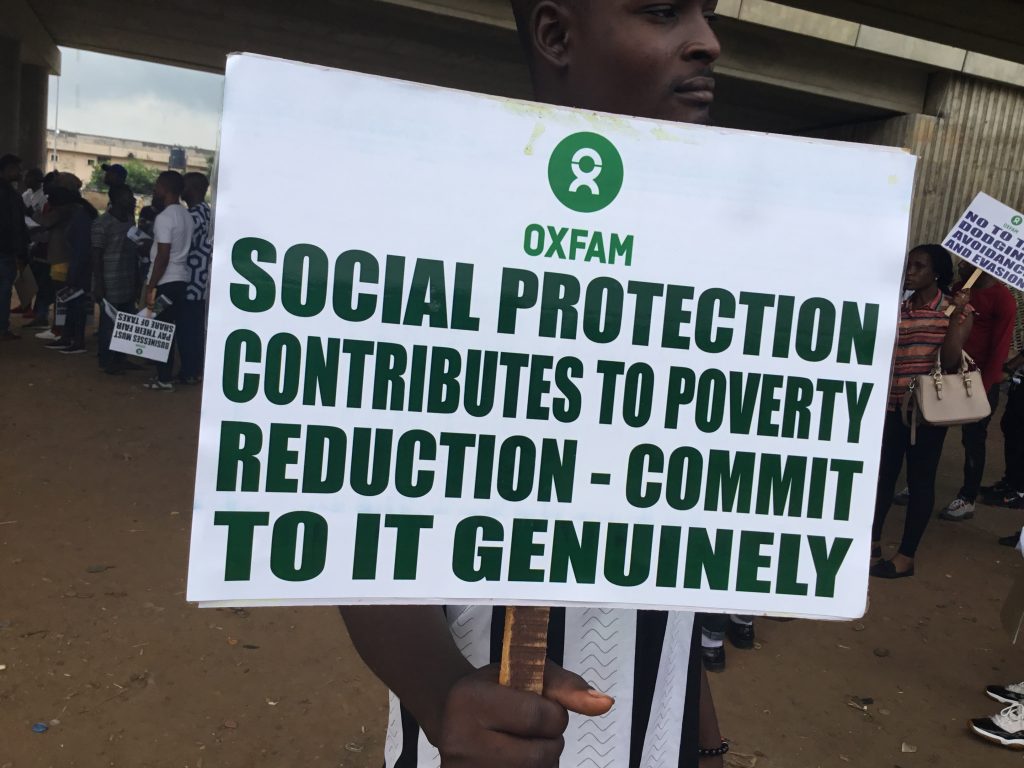
In some quarters, there are some undertone voice of allegations that the developed countries would rather have Africa remain underdeveloped thus high rate of unemployment. And on the other hand, labour unions have continued to criticise the IMF’s recommendations to many countries in Africa. What is your take?
Africa’s progress is global progress and not the other way around. If we have zero Africans crossing the Mediterranean in search of illusive greener pastures abroad, I think this is good for everyone – Africa and the developed countries in the West.
So Africa’s progress is beneficial to all. The big paradigm shift that must happen is that Africans must come to terms with the fact that they are responsible for the continents progress – and no one else will come in to develop the continent.
It has never happened under any civilisation before and will not happen in Africa. So, Africans must take the bull by the horns and take leadership in developing Africa. And as we do, let us be encouraged by an African proverb, that “he who fears the sun, will not become chief” –Innovative Volunteerism, the model by which all of us can engage and meaningfully participate and take responsibility of developing Africa, is not easy.
But the rewards are there. It is how your skills will deliver value and provide bread for you even as you develop your continent by turning challenges into opportunities. If you faint because of the challenges, then Africa’s ascension and development will remain a pipe dream. Let’s therefore encourage ourselves and engage.





















